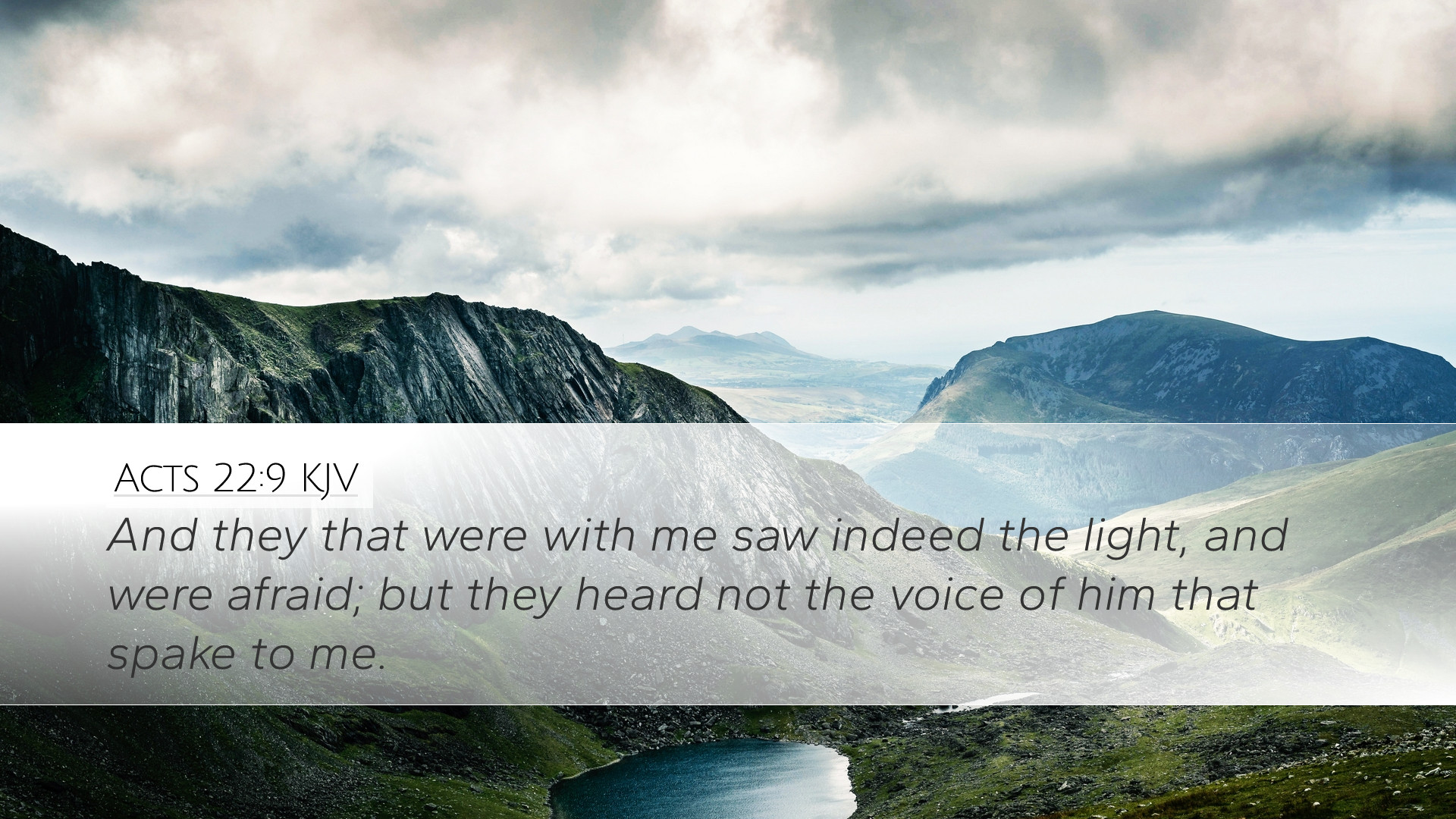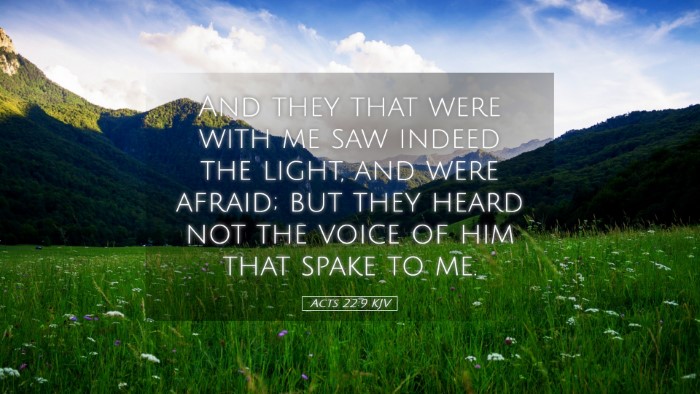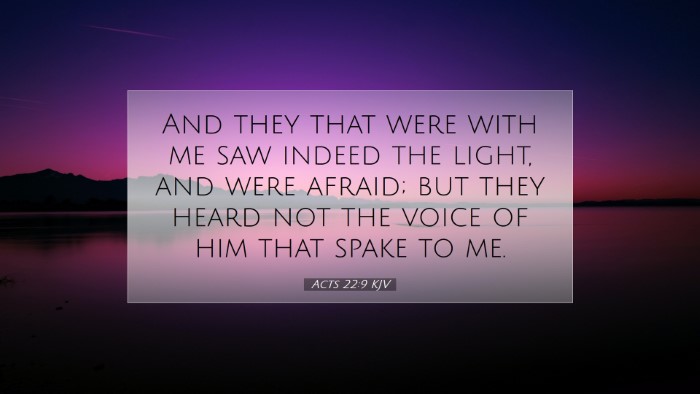Commentary on Acts 22:9
Verse Reference: Acts 22:9 - "And they that were with me saw indeed the light, and were afraid; but they heard not the voice of him that spake to me."
Introduction
The verse of Acts 22:9 captures a pivotal moment in the narrative of the Apostle Paul’s conversion experience on the road to Damascus. It reflects the dual phenomena of vision and hearing, serving to illustrate the dynamics of divine revelation and personal conversion. This commentary synthesizes insights from noted public domain sources, focusing on the implications of this passage for pastors, theologians, and students of the Bible.
Contextual Overview
Acts 22 forms part of Paul’s defense before an angry mob in Jerusalem, where he recounts his dramatic conversion as a means of testifying to God’s grace. This specific verse highlights the encounter with the divine light and voice, a foundational experience for Paul as it sets the stage for his ministry. Understanding the context is crucial for grasping its theological significance.
Summary of Paul’s Account
Paul's account, as recounted here, emphasizes not just his personal experience but also the experiences of those who accompanied him, which invites reflection on the nature of divine encounters:
- Witnessing the Light: The companions of Paul witnessed the blinding light that signified the presence of Christ but were enveloped in fear, indicating a powerful manifestation of divine authority.
- Inability to Hear: Their inability to hear the voice of Christ introduces complexities about divine communication — it suggests that not all who see the evident manifestations of God can comprehend His specific words.
Exegesis of Key Phrases
“saw indeed the light”
Matthew Henry comments on the significance of "the light," signifying not only the glory of God but also the exposure of darkness in one's life. The light serves both as a revelation and a judgment, a theme echoed throughout scripture as God's presence both reveals and transforms the hearts of men.
“they heard not the voice”
Adam Clarke elaborates on the Greek term used for "heard," suggesting that while the companions perceived the sound, they could not discern the words attributed to Christ. This highlights a spiritual reality where divine messages may be meant for specific individuals, revealing the personal nature of God's communications. The inability of others to hear serves to underscore Paul’s singular calling and commission.
Theological Insights
The Nature of Divine Revelation
Divine encounters are depicted in scripture as personal and transformative. This passage illustrates that God’s calling often includes a personal aspect that may not be universally understood or acknowledged. Albert Barnes points out that while the companions shared in the experience of the light, the specific message was tailored for Paul, affirming the notion that God's purposes are unique for each individual.
Fear and Awe in God’s Presence
The fear instilled in Paul’s companions upon witnessing the light indicates the proper human response to the holiness of God. This sense of fear is a theme seen throughout scripture and speaks to the reverence and trembling that follows encounters with the divine. It is an awakening to the reality of God’s power and majesty.
Implications for Ministry
This verse serves as a reminder for those in ministry to understand that divine revelations are often accompanied by profound awe and may lead others to different responses. In ministry, one must not only seek personal encounters but also listen for God's voice amid communal experiences, recognizing that God operates differently within each heart.
Conclusion
Acts 22:9 encapsulates a transformative experience that resonates deeply with the journey of faith. For pastors, students, and theologians, this verse serves as a profound reminder of the unique and often mysterious ways in which God reveals Himself, calling individuals into a deeper relationship with Him. The fear of those who witnessed the light tethered to Paul’s experience reflects the ongoing tension in human responses to divine encounters — a tension that invites reflection, reverence, and a response.


